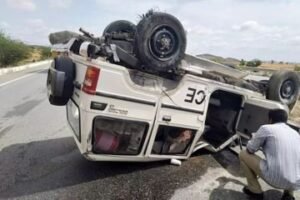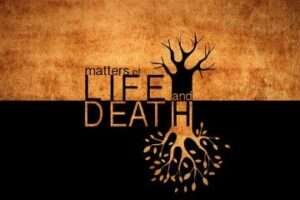Ossification Test Conducted On An Accused Cannot Be Conclusive To Declare Him As A Juvenile On The Date Of The Incident if His Age Around 40-55 Years
Case: Ram Vijay Singh Vs. State Of Uttar Pradesh
Coram: Justices RF Nariman, Hemant Gupta, and BR Gavai
Case No: Cr. A 175 OF 2021
Court Observation: “When a person is around 18 years of age, the ossification test can be said to be relevant for determining the approximate age of a person in conflict with the law.
However, when the person is around 40-55 years of age, the structure of bones cannot be helpful in determining the age.”, the bench comprising Justices RF Nariman, Hemant Gupta, and BR Gavai observed.
“As per the Scheme of the Act, when it is obvious to the Committee or the Board, based on the appearance of the person, that the said person is a child, the Board or Committee shall record observations stating the age of the Child as nearly as may be without waiting for further confirmation of the age. Therefore, the first attempt to determine the age is by assessing the physical appearance of the person when brought before the Board or the Committee. It is only in case of doubt, the process of age determination by seeking evidence becomes necessary.
At that stage, when a person is around 18 years of age, the ossification test can be said to be relevant for determining the approximate age of a person in conflict with the law.
However, when the person is around 40-55 years of age, the structure of bones cannot be helpful in determining the age”, the court said.
“When the ossification test cannot yield trustworthy and reliable results, such test cannot be made a basis to determine the age of the person concerned on the date of the incident.
Therefore, in the absence of any reliable trustworthy medical evidence to find outage of the appellant, the ossification test conducted in the year 2020 when the appellant was 55 years of age cannot be conclusive to declare him as a juvenile on the date of the incident.”
“Since there is a document signed by the appellant much before the date of occurrence, therefore, we are of the opinion that the appellant 7 (2020) 7 SCC 1 cannot be treated to be juvenile on the date of incident as he was more than 21 years of age as per his application submitted to obtain the Arms Licence”, the bench said.
[doc id=3719]
Previous Posts
The Constitutional Validity Of Providing Multi-Member Representation From A Municipality Ward
Married Hindu Can be a part of ‘Family Settlement’ With Parental Side Heirs
Supreme Court Calls For Law To Clarify Validity Of Ipso Facto Contractual Clauses In Relation To Insolvency Download Judgement




